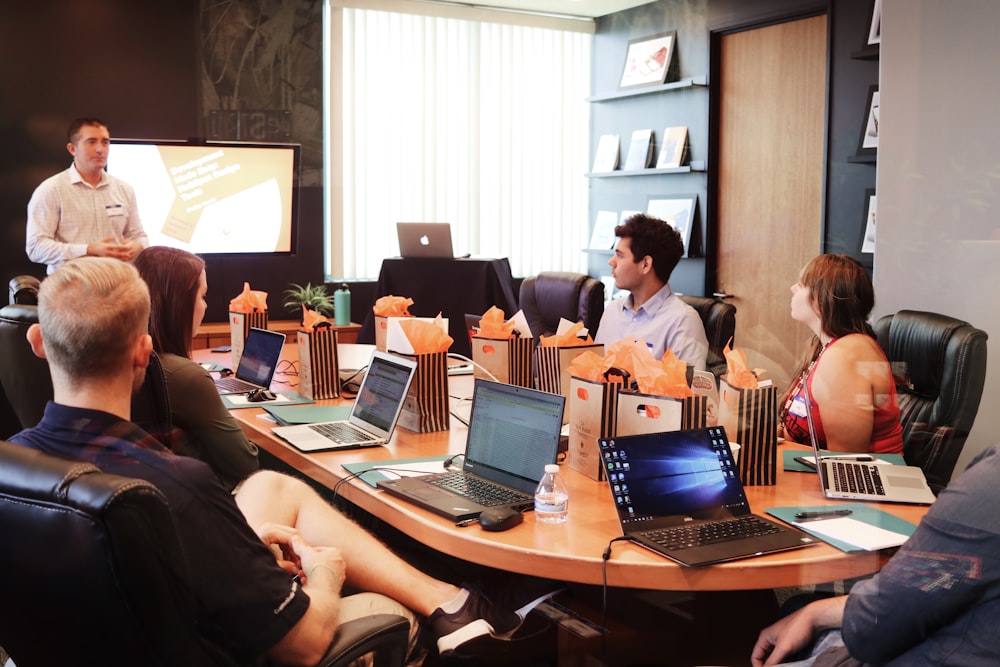Why is Business Acumen Important for HR Professionals?

Photo by Adeolu Eletu @ unsplash
Human resources professionals are seen by many leaders as strategic partners to their businesses.
The role of HR professionals has drastically evolved over time, where they are - almost single-handedly - responsible for aligning strategic initiatives with the company’s goals and priorities. This is where having knowledge of and a skillset in business acumen will prove vital for HR professionals in 2023.
What is Business Acumen?
Business acumen is the understanding of a company’s situation, and the ability to make informed and effective business decisions. In other words, it’s a complete understanding of how an organisation makes money, along with how that business’s customers or clients make money.
This may interest you: 8 Skills You Need To Succeed In Business
Business acumen is not innately given to everyone; most business acumen is taught. However, by learning business acumen and its importance, HR managers and, by extension, their teams, can understand complex business situations more efficiently and instinctively.

It’s one thing to manage these situations from an HR perspective, but another thing entirely to hone intuitiveness to the point where it’s almost second nature to recognise and address various situations.
Importance of Business Acumen for HR
Many business owners are worried about the gap that exists between their business strategy, Human resources strategy and their HR initiatives. There is reason to suggest that many HR professionals lack essential skills for top-level business management and strategic advisory functions. However, on the flip side, many HR managers are expressing concern about severe underfunding in the professional development of their teams, specifically business acumen. In fact, 41% of Chief Human Resources Officers claim that business acumen skills are the most lacking when recruiting top-level talent in the field.

It’s believed that HR practitioners that hold essential business acumen skills will provide a greater scale of services across a business, such as its finances, client management, product delivery, market research, promotions, and many others. Ultimately, however, it would bridge this aforementioned gap between the company’s objectives and the HR strategy that sits underneath it, leading to an increase in productivity and eventual growth.
Read more: The Evolving Role Of Chief Human Resource Officers
Benefits of Learning Business Acumen
Teaching and refining business acumen skills across an HR function - whether in-house or outsourced - can lead to many advantages for a company. For instance…
- Business acumen knowledge allows HR professionals to make valuable, data-driven contributions to help the business and its employees.
- It helps fill a gaping hole in a market where increasing numbers of companies need HR professionals to fulfil multiple responsibilities.
- Learning this skill bilaterally helps HR practitioners become more knowledgeable about the business, and by extension, their efficiency will improve.

- It can lead to an enhanced understanding of the company’s internal processes, task and operations management, along with its broader sector, clientele and competitors. As a result, HR professionals can offer insights into a multitude of areas.
- By teaching business acumen across the board to the HR team, they will understand every employee’s role much more effectively. Over time, this will lead to improved relationships between everyone in the organisation.
- When HR professionals and business partners can grasp all areas of the business, it can improve business performance and profit drastically.
Supplementary reading: 6 Key Steps To Realise Your Business Vision
The role of HR is continually evolving and now, business acumen has become a ‘must-have’ for anybody getting into this area.
What Does Business Acumen for HR Professionals Involve?
Business acumen encompasses three vital components:
- Context interpretation - through analysis of market trends and factors that affect the business, this component involves understanding internal and external company dynamics.
- Customer orientation - understanding the company’s product or service offering, the target customer or client, and aligning policies and procedures to enhance the delivery at all touchpoints.
- Strategic co-creation - this involves understanding the organisation's inherent value, how it works, and how successful it is. While this is arguably subjective, the knowledge must be analysed objectively, making room for an aligned HR strategy and business strategy.
In light of all these points, it’s important to remember that in 2023, business communication is becoming increasingly more ‘visual’. In other words, business leaders, under guidance from their HR teams, need to be able to communicate well in person and on screen.

Explore: A Lesson in Leadership from the HR Perspective
CEOs, executives, business owners and designated spokespeople need to be able to communicate effectively in front of a camera, be it televised, on a video conference call or in corporate video content streamed on social media channels. To achieve this, HR teams are investing more in professional camera and video equipment and media training to create better quality and more impactful marketing visuals. Modern business acumen training, in essence, would further support business leaders to articulate their information skillfully and professionally on whatever platform they use.
How to Develop HR Business Acumen
Specific capabilities and competencies will vary from one organisation to another, but as a rough guide, these strategies will help to develop business acumen.
- Thoroughly understand who the end-consumers are, what they are looking for, what their pain points are, and why they shouldn’t go to your company’s competitors.
- Understand how leaders’ strategic decision-making affects employees and stakeholders in the company.
- Constantly teach your HR team members about the business, what it does, and why. Look beyond the finances and look at other metrics like retention, benefits, engagement, and so on.
- Don’t stop learning and seek out recommended podcasts, books, articles, courses and events to develop HR skills that will likely include elements of business acumen training.
Auxiliary reading: Training And Developing People
- Consider shadowing or mentoring, either internally or externally. Don’t be afraid to share your knowledge or request that other, more experienced professionals give your team members the time to hone their skills.
Be sure to check out the media below:
Leaderonomics.com is an advertisement-free website. Your continuous support and trust in us allow us to curate, deliver and upkeep the maintenance of our website. When you support us, you enable millions to continue reading for free on our website. Will you give it today? Click here to support us.
Business
Tags: Be A Leader, Hard Talk, Consultant Corner, Executing Leadership






